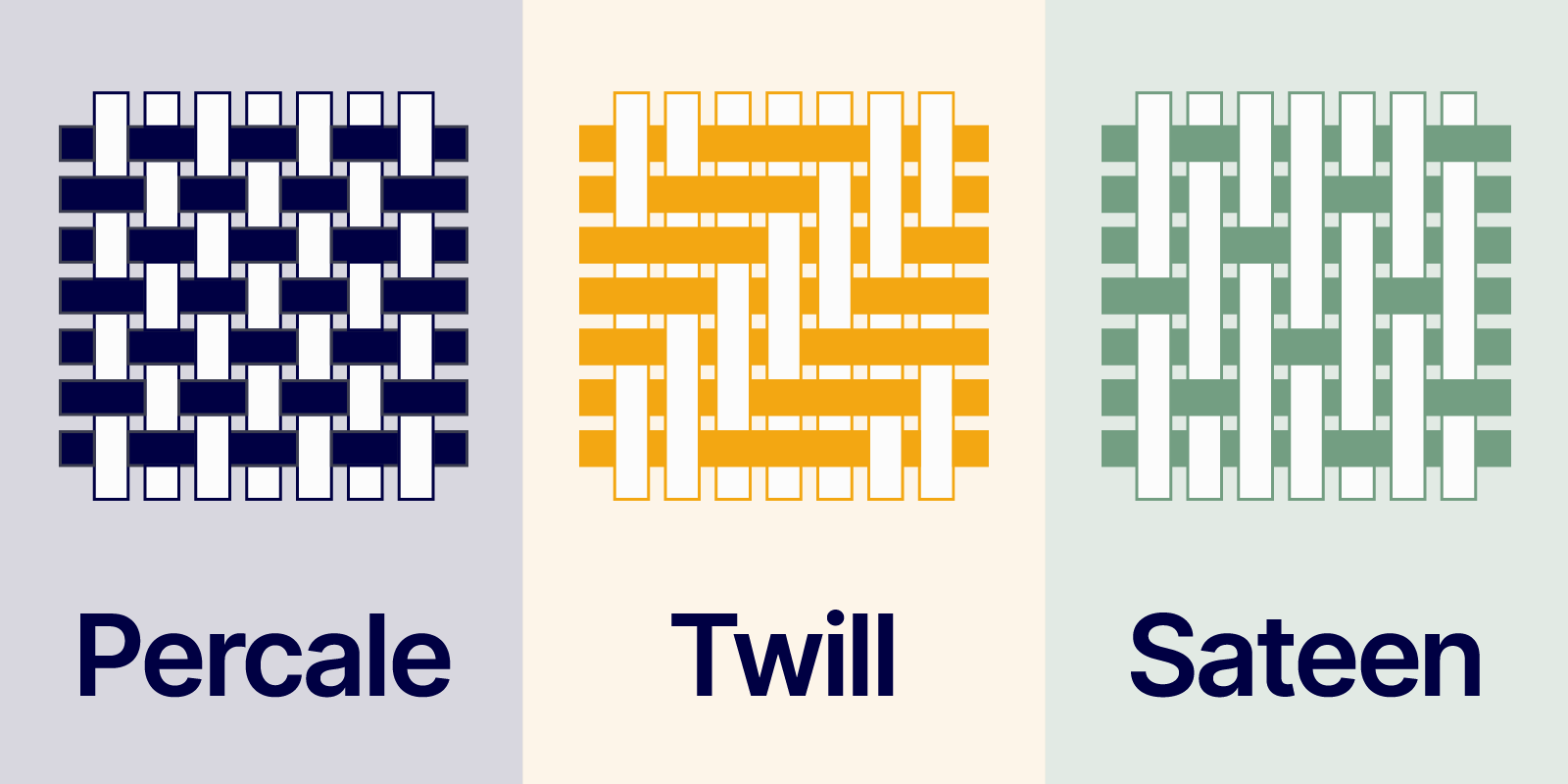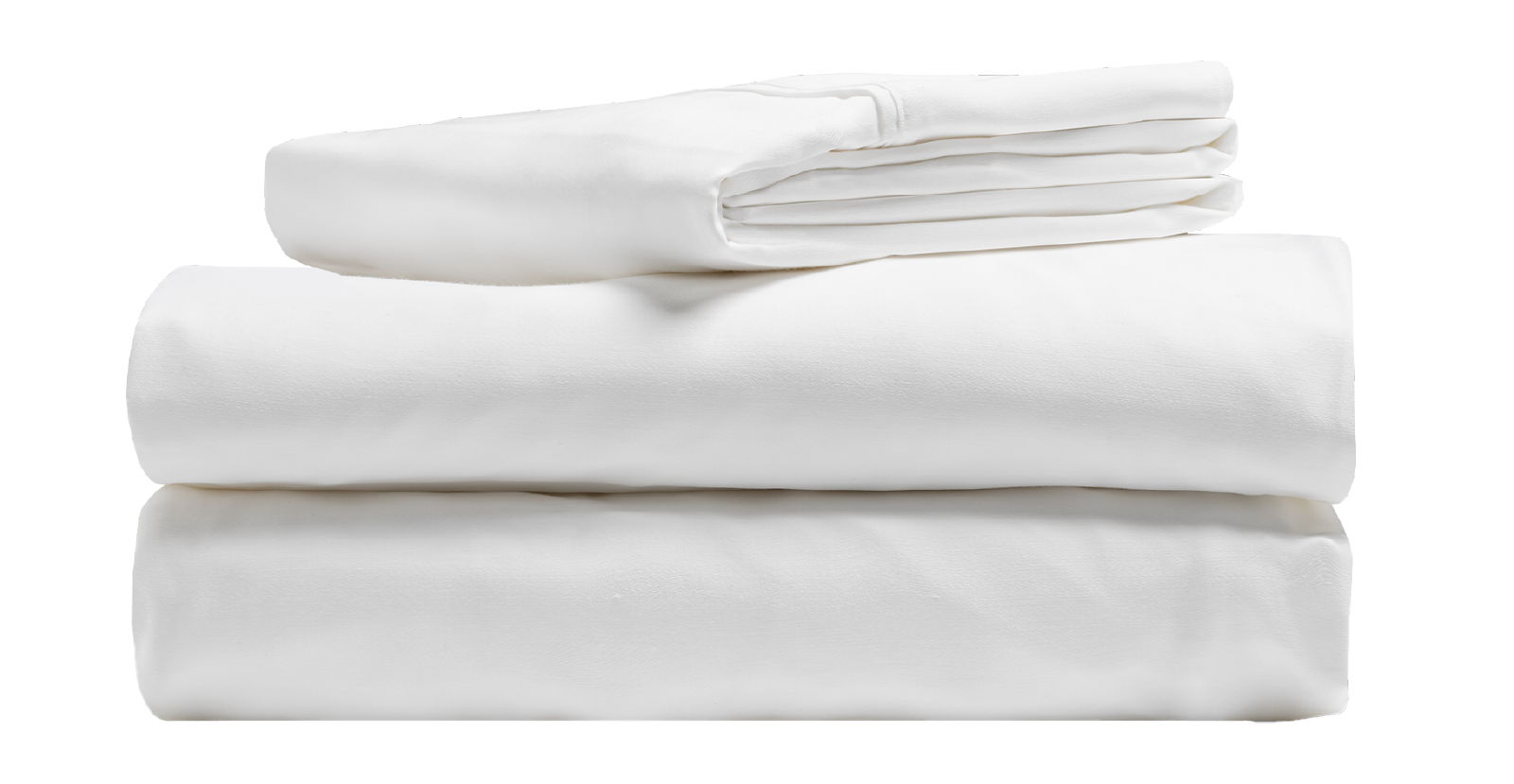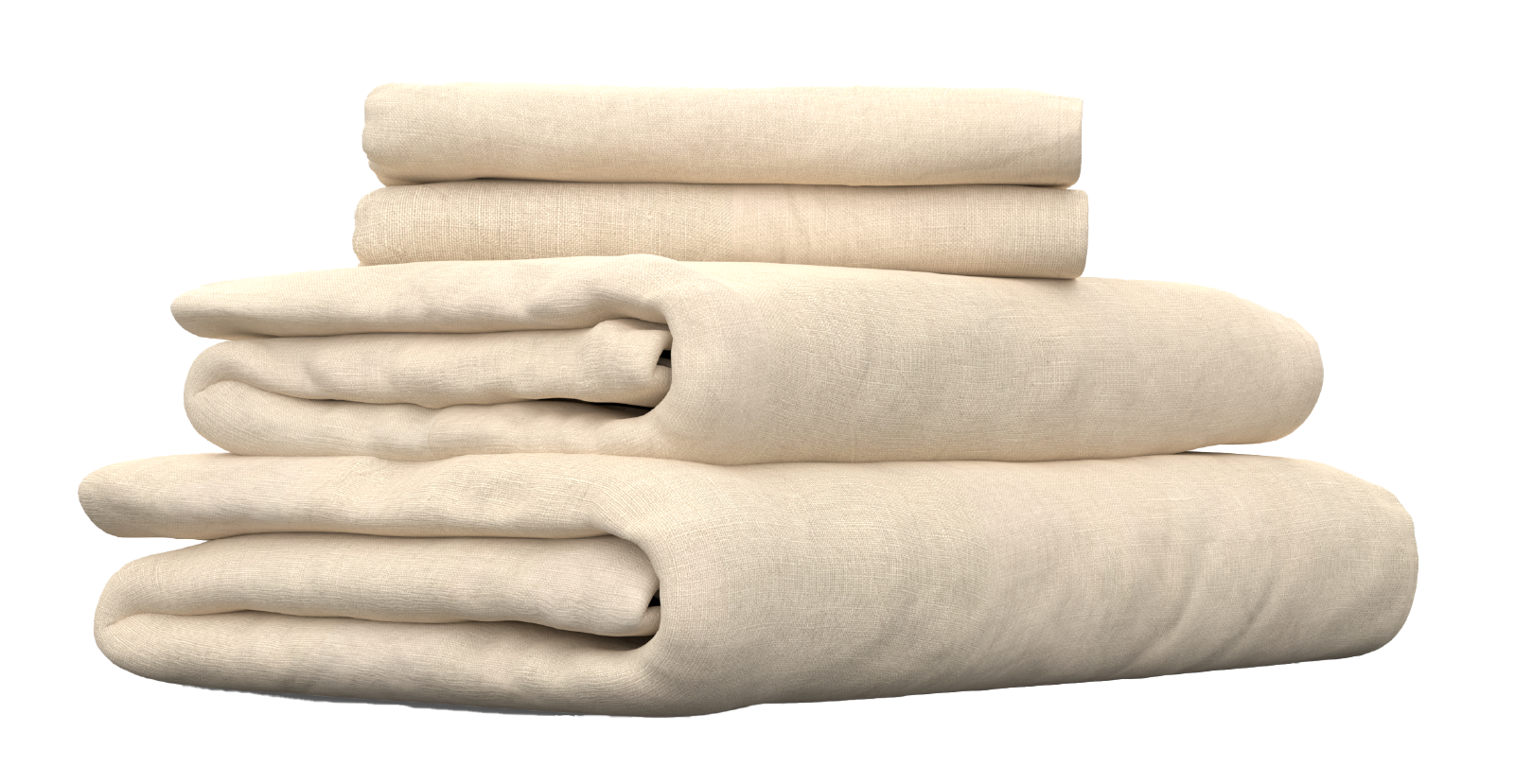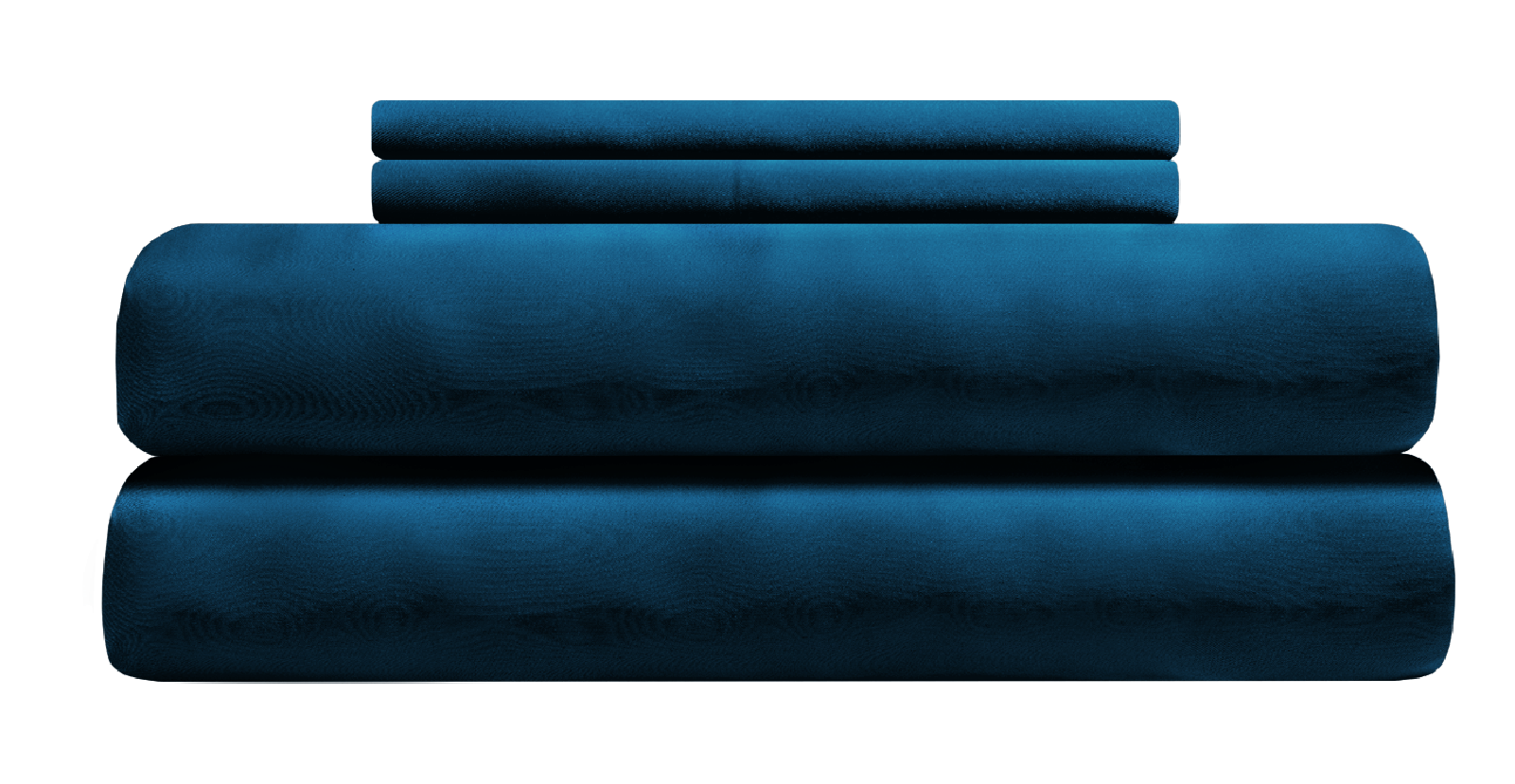What Is a Good Thread Count For Sheets? (2025)
Updated: March 31, 2025 | Published: July 24, 2024When you’re shopping for new sheets, higher thread count is often marketed as being higher quality—but that isn’t always the case. This can lead to frustration when your new sheets aren’t what you expected.
That’s because thread count is just one factor that determines the quality of your sheets. This article will explain what thread count is, how it’s measured, and what you should be looking for when shopping for new sheets.
What does thread count mean?
Thread count measures how tightly a fabric is woven. It’s measured based on the number of threads contained in one square inch of woven material.
This includes all threads running along the weave‘s length (warp) and its width (the weft). For instance, a fabric with 200 warp threads and 200 weft threads per square inch would have a thread count of 400.
In general, the higher the thread count, the softer and more durable your sheets will be. But they can also be rougher and stiffer, depending on what your sheets are made out of.
Thread count also means different things for different sheets, depending on their weave:
- Percale–weave sheets have a simple one-over-one-under thread pattern. They usually have a thread count of 200–400.
- Twill–weave sheets look like denim, with parallel ribs in a diagonal pattern. This type of weave is very durable, though it lacks the softness of other options. A thread count of 200–500 is typical.
- Sateen–weave sheets have a tighter, satin-like structure to make them smoother than percale sheets. To maintain their structure, they often have a higher thread count of 300–600.
Bed Sheet Fabric Patterns

Is a higher thread count better?
No, higher thread count isn’t always better. Higher thread count can suggest a softer and more durable sheet, but this isn’t always the case. The type of fabric, its quality, and its weave all matter when it comes to the feel and longevity of your sheets.
For example, sheets with a thread count above 800 often use multi-ply yarns to inflate the number. The result is actually a coarser and less durable fabric.
Extremely high thread counts can sometimes hinder airflow, making the sheets feel heavier and less breathable. It’s crucial to consider other aspects of the sheet’s construction, such as the type of cotton used (like Egyptian or Pima) and the finishing processes, which can have a more substantial impact on comfort and quality.
What is the best thread count for sheets?
The best thread count for sheets depends on the type of fabric used, and what you want to get out of your bedding.
- Cotton sheets should have a thread count between 300 and 400. Sheets within this range tend to be comfortable without being too heavy or prone to wear. Percale weaves tend to be the most common. Sateen–weave cotton sheets, which are denser, can have thread counts between 300 to 600.
- Bamboo sheets should have a thread count between 250 and 350. Sheets made from bamboo fibres can have a thread count of 500, and sometimes even higher. But past that point, they can feel stiff and uncomfortable, especially if you’re using them as an alternative to cotton sheets. (Learn about the differences between bamboo vs cotton sheets.)
- Lyocell sheets should have a thread count between 300 to 450. If you’re considering lyocell vs cotton sheets, lyocell (also known by the brand name TENCEL™) is known for its eco-conscious manufacturing. Thread counts can go as high as 600, but don’t offer substantial benefits.
- Silk sheets should have a thread count between 300 and 600. Silk sheets with a lower thread count can feel very airy in addition to being smooth. Silk sheets with a higher thread count can often be very warm to sleep in, which is something to consider if you’re a hot sleeper.
- Linen sheets should have a thread count between 80 and 140. Linen is woven from flax fibres, which are much thicker and stronger than the fibres used in many other fabrics. They have a much lower number of threads per inch than many other types of sheets. This is because the quality of linen, and a few other fabric types, isn’t something that thread count can tell you about on its own.

Do all sheets use thread count?
Most sheets that you can buy will list their thread count, but thread count doesn’t always tell the whole story.
Thread count is useful when you want to know how fine or coarse a cotton or cotton/polyester weave is. But it’s less useful when discussing other fabric types, because thread count doesn’t consider the unique properties other materials can have.
Linen sheets, for example, can have a thread count as low as 50—much lower than the ideal thread count for cotton sheets. But linen is woven using flax fibre, which is much thicker and stronger than cotton fibre. As a result, linen sheets are known for their quality and durability, even with their lower thread count.
When it comes to linen and silk sheets, it’s better to use different measurements than thread count to determine the density of their weave.
- Linen bed sheets are measured using grams per square metre (GSM). This is exactly what it sounds like: how much one square metre of material weighs in grams. The best linen sheets are 140–160 GSM to strike a balance between comfort and breathability.
- Silk bed sheets are often measured using the momme (pronounced just like “mommy”). This is a Japanese unit that describes how much a silk sheet would weigh if its dimensions were 90 metres by 1.2 metres. One momme weighs 4.34 grams per square metre. The ideal range for silk bed sheets ranges from 17 to 30 mommes.

How do I find the right sheets?
When you’re shopping for new sheets, consider more than just the thread count or the material. Here’s a list of other factors you should consider.
- Fibre Content. When you want the best material for bed sheets, you should look for high-quality materials like 100% Egyptian cotton, European flax, or bamboo for softness and durability.
- Weave Type. If you want a cool, breathable feel, think about getting percale–weave sheets. If you want a smooth and silky texture instead, consider choosing sateen sheets.
- Thread Quality. If you’re looking for durable and long-lasting sheets, look at the material that goes into making the fabric’s thread. When it comes to cotton, long-staple fibres are generally softer and more durable.
- Finishing Processes. After fabric is woven into a sheet, different finishing processes can be applied to make the fabric softer and more durable. Cotton and cotton-blend sheets, for instance, often undergo a process called mercerization. You can tell if a cotton sheet is mercerized if it has a smooth, almost reflective lustre.
- Breathability. Make sure the fabric allows for good airflow to prevent overheating. Remember, fabrics with higher thread counts are often less breathable.
- Mattress size. If you have a relatively big bed, that means having to wash bigger sheets. If you’re thinking of buying a new mattress, finding the right mattress size can save you time and effort when laundry day comes.
- Care instructions. Consider how easy the sheets are to maintain and whether they fit your lifestyle. Always read the instructions on the laundry tag to ensure you wash your sheets properly, and remember to do it regularly.
- Brand Reputation. Purchase from reputable brands known for quality and transparency. Read customer feedback on independent review sites like the Better Business Bureau and Trustpilot to get an idea of what a company is like before buying from them.

Which bed sheets should I buy?
If you’re looking for new, high-quality sheets for your bed, we recommend these standout choices. These brands all offer a generous 120-night sleep trial, giving you plenty of time to get to know your new sheets before committing to them.
- Douglas Egyptian Cotton Sheets take the classic feel and durability of cotton to the next level. Made with Egyptian 400-thread count cotton for a smooth look and soft feel, these cotton sheets are also sturdy and long-lasting.
- Octave Bamboo Sheets are great if you need help to sleep cool at night. These 300-thread count sheets are extra silky and cool to the touch, providing superior cooling to stop you from overheating in bed.
- Logan & Cove Linen Sheets are made with 100% European Flax® Linen. They’re manufactured at 160 GSM for the perfect balance of softness, crispness, and breathability. These sheets are stonewashed, which means they’ll feel great right away and soften up even more over time.
Want to learn more? Read our ranked list of the best bed sheets in Canada.
Our goal is to provide the information you need to find the mattress that’s right for you. Get started with some of our most popular mattress shopping resources:
- Best Mattress Guides: Best Mattress Canada, Best Mattress In a Box
- Reviews: Douglas Original, Logan & Cove Choice, Juno, Octave Vista
- Comparisons: Douglas vs Endy, Douglas vs Casper
We use independent, third-party engineering firms (commissioned by us) with the APEGA stamp of approval to conduct mattress testing on our behalf, using publicly available data. We review and test all mattresses on 40+ criteria we think are important to you, including price, country of manufacture, sleep trial, warranty, features, materials used, motion isolation and edge support ratings, customer satisfaction reviews, returns, and refunds.
